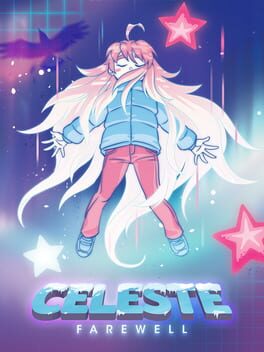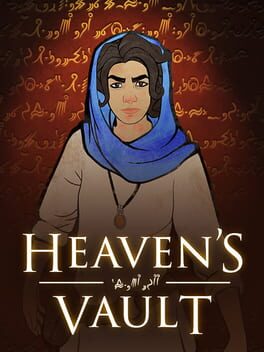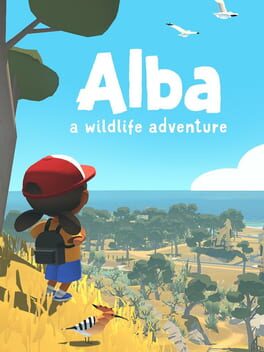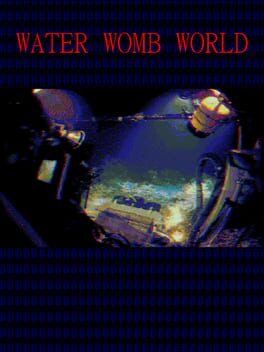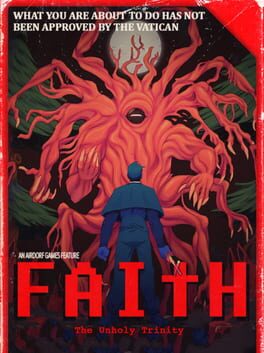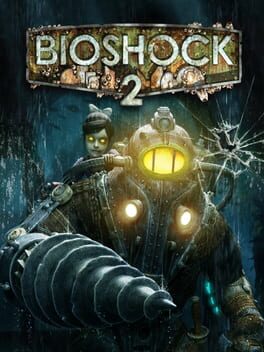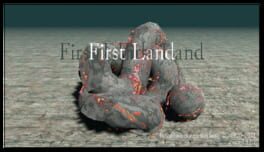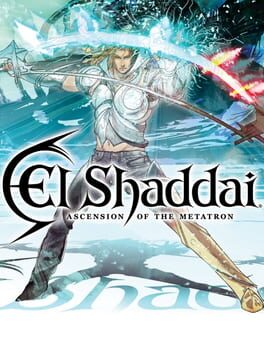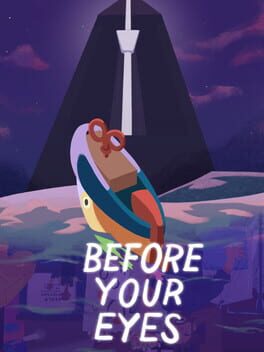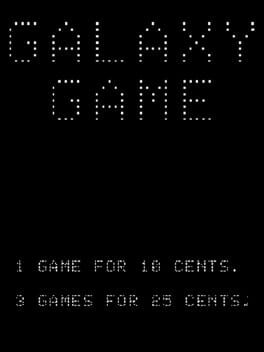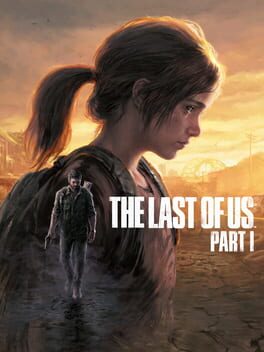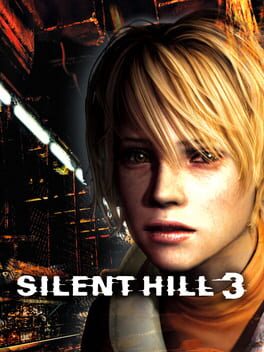2019
Si los capítulos y retos finales de Celeste ya mostraban síntomas de agotamientos, Celeste: Farewell trata de arreglarlos con un par de objetos excelentes (los peces y las medusas). Pero la configuración misma de los niveles ha dado un inmenso paso atrás. Ya no se trata de ser inventive ni de dominar el dash, ahora todo se reduce a hacer exactamente lo que tienes que hacer y no equivocarte ni un milímetro. La sección final es una prueba de resistencia que puso a prueba tanto mi frustración como mi valoración entera de la obra. Si lo único que tienes que ofrecer al final de todo es dificultad extrema y técnicas de speedrunner, entonces tu juego ya se ha quedado sin ideas.
En un vídeo de Patricia Taxxon sobre Celeste oí no hace mucho que la dificultad en los juegos podría entenderse como añadir picante a un plato, y me pareció una analogía bastante buena. Aquí sería como si alguien hubiera echado un bote entero de wasabi que, en vez de aumentar gradualmente, se limitara a hacerte toser entre cada cucharada.
--------------------------
If the final chapters of Celeste already showed signs of exhaustion, Celeste: Farewell tries to fix them with a couple of excellent objects that do wonders for me-the fish and the jellyfish. But the design of the levels has taken an immense step backwards. It's no longer about being inventive or mastering the dash, now it's all about doing exactly what you have to do and not getting an inch wrong. The final section is an endurance test that tested both my frustration and my entire assessment of the game. If all you have to offer at the end of it all is extreme difficulty and speedrunner techniques, then your game has officially run out of ideas.
In a video about Celeste I heard not long ago that difficulty in games could be understood as adding spice to a dish, and I thought that was a pretty good analogy. Here it would be as if someone had poured a whole pot of wasabi that instead of gradually increasing would make you cough a lot with each spoonful.
En un vídeo de Patricia Taxxon sobre Celeste oí no hace mucho que la dificultad en los juegos podría entenderse como añadir picante a un plato, y me pareció una analogía bastante buena. Aquí sería como si alguien hubiera echado un bote entero de wasabi que, en vez de aumentar gradualmente, se limitara a hacerte toser entre cada cucharada.
--------------------------
If the final chapters of Celeste already showed signs of exhaustion, Celeste: Farewell tries to fix them with a couple of excellent objects that do wonders for me-the fish and the jellyfish. But the design of the levels has taken an immense step backwards. It's no longer about being inventive or mastering the dash, now it's all about doing exactly what you have to do and not getting an inch wrong. The final section is an endurance test that tested both my frustration and my entire assessment of the game. If all you have to offer at the end of it all is extreme difficulty and speedrunner techniques, then your game has officially run out of ideas.
In a video about Celeste I heard not long ago that difficulty in games could be understood as adding spice to a dish, and I thought that was a pretty good analogy. Here it would be as if someone had poured a whole pot of wasabi that instead of gradually increasing would make you cough a lot with each spoonful.
2019
Bajo la inestabilidad de este programa se encuentra una de las mejores adaptaciones que he visto de la experiencia arqueológica al videojuego. Con una premisa interesante, un mundo amplio y fascinante, y unos personajes atrayentes y complejos, Heaven's Vault te sumerge en la experiencia de deducción, especulación y, en última instancia, incertidumbre que implica la labor historiográfica. Es posible que esta inestabilidad se sienta como un error de diseño para alguien acostumbrade a la cuidadosa experiencia turistificada de Chants of Sennaar, pero para mí, es ese no saber, ese tener que asumir que tu traducción es correcta y tener que volver a ella una y otra vez para ver si no te has alejado, es la clave de todo. Este juego ofrece un apoyo similar al que Paradise Killer ofrecía con Lady Love Dies y su capacidad de deducción, en el sentido de que Aliya y Six siempre estarán ahí para decirte cuando algo se está traduciendo correctamente. Pero hay una diferencia importante entre servirte de apoyo, y construir un mundo en torno a un lenguaje que acaba sintiéndose demasiado artificial.
--------------------------
Underneath the jankiness of this program lies one of the best adaptations I've seen of the archaeological experience in a video game. With an interesting premise, a complex and fascinating world, and engaging and complicated characters, Heaven's Vault immerses in a session of deduction, speculation, and the uncertainty that historiographical work entails. It's possible that this instability might feel like a design flaw to someone used to the carefully turistic experience of Chants of Sennaar, but for me, it's that not knowing, that having to assume that your translations are correct, and having to go back to them again to see you haven't wronged too much, is the key to it all. This game offers something similar to what Paradise Killer did with Lady Love Dies and her deductional powers, in that Aliya and Six will always be there to tell you when something is translating correctly. But there's an important difference between supporting you, and building a world around a language that feels way too artificial for its own good.
--------------------------
Underneath the jankiness of this program lies one of the best adaptations I've seen of the archaeological experience in a video game. With an interesting premise, a complex and fascinating world, and engaging and complicated characters, Heaven's Vault immerses in a session of deduction, speculation, and the uncertainty that historiographical work entails. It's possible that this instability might feel like a design flaw to someone used to the carefully turistic experience of Chants of Sennaar, but for me, it's that not knowing, that having to assume that your translations are correct, and having to go back to them again to see you haven't wronged too much, is the key to it all. This game offers something similar to what Paradise Killer did with Lady Love Dies and her deductional powers, in that Aliya and Six will always be there to tell you when something is translating correctly. But there's an important difference between supporting you, and building a world around a language that feels way too artificial for its own good.
2019
La poesía de esta obra encierra, en mi opinión, un poco de cerrazón. Como si la falta de acción y de posibilidades se intensificara al final pero nos dejara en vilo. Tal vez se deba a que esta obra no se siente acabada. Al poema que se nos recita parece que le faltan un par de estrofas, y es muy probable que cuando acabe It's Summer, de un par de años después, esa sensación cambie.
-----------------------------------------------------
The poetics in this are, in my opinion, a bit lacking. As if the lack of action and possibility wanted to intensify the ending, but left it hanging. Perhaps it's because it doesn't feel finished. The poem that is recited to us seems to be missing a couple of stanzas, and it is very likely that when I play "It's Summer" I'll manage to change my feelings about it.
-----------------------------------------------------
The poetics in this are, in my opinion, a bit lacking. As if the lack of action and possibility wanted to intensify the ending, but left it hanging. Perhaps it's because it doesn't feel finished. The poem that is recited to us seems to be missing a couple of stanzas, and it is very likely that when I play "It's Summer" I'll manage to change my feelings about it.
Tal vez se deba al hecho de que la naturaleza tan idealizada de este libro de colores para adultos contrasta mucho con mi propia experiencia de niño, pero hay cierto carácter impostado en las formas de este juego que me echa un poco para atrás. Lo peor de todo, en mi opinión, es que a las criaturas de esta historia no se les permite, ante todo, ser criaturas. En vez de jugar a explorar por tu cuenta, meterte en líos e ir un poco a la tuya por la isla del Secarral (ya sea para matar el aburrimiento o incordiar a tu familia), juegas el papel de una niña híper-idealizada que puede hacer literalmente cualquier cosa que se le proponga. A un juego con tan poca profundidad se le va la vida, en mi opinión, cuando intenta meterte muchas tareas a la vez. Al final, lo único que haces es recolectar y rellenar el cuaderno de las tareas, y no creo que eso esa lo que unas vacaciones deberían ser.
--------------------------------------------
Perhaps it's due to the fact that this adult coloring book contrasts so sharply with my own experience as a child that used to vacation in a similar place, but there's a fakeness to this work that turns me off. The clearest example I can offer is that the children of the game are never allowed to act as children. Instead of exploring on your own or getting into shenanigans because you want to kill boredom or annoy your family, you act as this highly idealized girl who's the best at everything they ask her to be. A game with so little depth loses me when it tries to cram so many tasks at once. In the end, all you're doing is collecting and filling in your notebook, which is not what vacations should be about.
--------------------------------------------
Perhaps it's due to the fact that this adult coloring book contrasts so sharply with my own experience as a child that used to vacation in a similar place, but there's a fakeness to this work that turns me off. The clearest example I can offer is that the children of the game are never allowed to act as children. Instead of exploring on your own or getting into shenanigans because you want to kill boredom or annoy your family, you act as this highly idealized girl who's the best at everything they ask her to be. A game with so little depth loses me when it tries to cram so many tasks at once. In the end, all you're doing is collecting and filling in your notebook, which is not what vacations should be about.
2020
Entre esto, The Well y Vía Negativa, empiezo a considerar a Yames une artista de pocas temáticas y muchas ideas. Donde el primer juego tanteaba con los elementos de una novela gótica clásica, y Vía Negativa trata de presentarse como una versión retorcida del sacrificio de Job, Water Womb World es, a mi parecer, la obra suya que más reconoce sus raíces lovecraftianas. A decir verdad, hay historias en los Mitos de Cthulhu que se leen prácticamente igual si excusas el componente religioso.
Como ya he dicho, creo que Yames es un poco de piñón fijo, pero mientras la estética y la presentación me entren, estaré dispuesto a excusarlo. Y aquí lo que me ha entrado es la interfaz de PC-98 que lo impregna todo. Con todo, hecho en falta un poquito más de variedad.
----------------------
Between this, The Well and Via Negativa, I'm beginning to see Yames as an artist with few themes but many ideas. Whereas the first game tinkered with the tropes of a gothic novel, and Via Negativa is like a twisted version of Job's sacrifice, Water Womb World is the one work of his that sits closer to Lovecraft. Truth be told, there are stories in the Cthulhu Myths that read pretty much the same minus the religious component.
As I said, I think Yames is a bit of a one trick pony, but as long as the aesthetics and presentation suit me I'll be willing to play. The PC-98 interface is what did it for me this time, but I missed some variety in the end.
Como ya he dicho, creo que Yames es un poco de piñón fijo, pero mientras la estética y la presentación me entren, estaré dispuesto a excusarlo. Y aquí lo que me ha entrado es la interfaz de PC-98 que lo impregna todo. Con todo, hecho en falta un poquito más de variedad.
----------------------
Between this, The Well and Via Negativa, I'm beginning to see Yames as an artist with few themes but many ideas. Whereas the first game tinkered with the tropes of a gothic novel, and Via Negativa is like a twisted version of Job's sacrifice, Water Womb World is the one work of his that sits closer to Lovecraft. Truth be told, there are stories in the Cthulhu Myths that read pretty much the same minus the religious component.
As I said, I think Yames is a bit of a one trick pony, but as long as the aesthetics and presentation suit me I'll be willing to play. The PC-98 interface is what did it for me this time, but I missed some variety in the end.
FAITH es vieja compañía a estas alturas, y su presencia y resolución ya resulta bienvenida, que no inesperada. He disfrutado mucho siguiéndole la pista a Airdorf todo este tiempo, y aunque creo que su pequeña trilogía ha caído en el clásico error de querer agrandarse y ensancharse hasta dejar de abarcar lo que controlaba, siento que este juego enlaza bastante bien con lo que venía explorando desde un principio. Así que ahora sólo me queda desearle suerte en lo que esté por hacer en los próximos años.
--------------------------------------
Playing FAITH is like a habit, and its presence at this point in time is welcomes, but not unexpected. I've really enjoyed following Airdorf's lead throughout the years, and while I think his little trilogy has fallen into the classic pit of wanting to get bigger and wider until not being able to deliver what it set out to do, I feel this game ties in quite neatly with what's been explored since the beginning. So now I can only wish him luck on whatever he sets out to do next.
--------------------------------------
Playing FAITH is like a habit, and its presence at this point in time is welcomes, but not unexpected. I've really enjoyed following Airdorf's lead throughout the years, and while I think his little trilogy has fallen into the classic pit of wanting to get bigger and wider until not being able to deliver what it set out to do, I feel this game ties in quite neatly with what's been explored since the beginning. So now I can only wish him luck on whatever he sets out to do next.
2020
No es difícil concretar lo que hace de Paradise Killer un gran juego. Se trata de una historia de detectives que no exige mucho esfuerzo deductivo de tu parte y te anima a que relajes y disfrutes del drama. Y hay mucho, mucho drama que disfrutar, con una escritura más que competente.
Pero Paradise Killer también hace un par de cosas únicas. La primera tiene que ver con tu capacidad de movimiento. Es algo que al principio se presenta como un mundo abierto más, parecido a Morrowind o a un mapa especialmente trabajado de Garry's Mod. Pero esa percepción cambia cuando aprendes a saltar, a saltar doble y a hacer dashes. De repente, el juego no va de acostumbrarse a un mundo gigantesco que te obliga a ir por un camino. Hemos abandonado los Metroidvania y entrado en un Mario que te deja jugar a tu antojo. Algo más cerca de 64 que de Galaxy.
El otro aspecto único es la manera en que esa libertad alimenta tu juicio personal de la Isla y sus habitantes. Como toda historia de detectives que se precie, Paradise Killer quiere entretenerte con un misterio enrevesado pero descifrable, que respeta tu inteligencia sin darte el plato masticado. Pero también es una historia que confía en que juzgues lo que ves, que observes quién tiene derecho a la inmortalidad o está condenado a desaparecer, y te plantees hasta qué punto vale la pena, como dice nuestra protagonista, devolver la vida al Paraíso. Tal vez sea cierto que el crimen corrompe, pero en este mundo dejado de la mano de (los) Dio(ses), el amor hace mucho que se fue.
Además de eso ¿Soy yo, o todo el mundo aquí está bueno que te pasas?
------------------------
It's not hard to pin down what makes Paradise Killer a great thriller. It's a detective game that doesn't demand much from you part and encourages relaxing and enjoying the drama. And there is lots and lots of drama to enjoy, with writing that's more than competent.
But Paradise Killer also does a couple of unique things. The first has to do with your movement. At first, it loos like this is just another open world, similar to Morrowind or a carefully crafted Garry's Mod map. But that perception changes when you learn to double jump and dash. Suddenly, the game isn't about getting used to it, but making it your playground. We've left Metroidvanias behind and entered into the realm of the Marios, the ones that reward exploration like 64, not so much like Galaxy.
The other unique aspect is the way in which that freedom feeds into your personal judgment of the Island and its inhabitants. Like any self-respecting suspense, Paradise Killer wants to entertain you with a complex but enjoyable mystery that respects your intelligence without giving away too much. But it is also a story that relies on you to judge what you see, to observe who has the right to immortality or is doomed beforehand, and to ask yourself if, as our protagonist says, breathing life back into Paradise is worth it. Perhaps it is true that crime corrupts, but in this world left by the hand of God(s), love has been long gone.
Also, is it just me, or is everyone here incredibly hot?
Pero Paradise Killer también hace un par de cosas únicas. La primera tiene que ver con tu capacidad de movimiento. Es algo que al principio se presenta como un mundo abierto más, parecido a Morrowind o a un mapa especialmente trabajado de Garry's Mod. Pero esa percepción cambia cuando aprendes a saltar, a saltar doble y a hacer dashes. De repente, el juego no va de acostumbrarse a un mundo gigantesco que te obliga a ir por un camino. Hemos abandonado los Metroidvania y entrado en un Mario que te deja jugar a tu antojo. Algo más cerca de 64 que de Galaxy.
El otro aspecto único es la manera en que esa libertad alimenta tu juicio personal de la Isla y sus habitantes. Como toda historia de detectives que se precie, Paradise Killer quiere entretenerte con un misterio enrevesado pero descifrable, que respeta tu inteligencia sin darte el plato masticado. Pero también es una historia que confía en que juzgues lo que ves, que observes quién tiene derecho a la inmortalidad o está condenado a desaparecer, y te plantees hasta qué punto vale la pena, como dice nuestra protagonista, devolver la vida al Paraíso. Tal vez sea cierto que el crimen corrompe, pero en este mundo dejado de la mano de (los) Dio(ses), el amor hace mucho que se fue.
Además de eso ¿Soy yo, o todo el mundo aquí está bueno que te pasas?
------------------------
It's not hard to pin down what makes Paradise Killer a great thriller. It's a detective game that doesn't demand much from you part and encourages relaxing and enjoying the drama. And there is lots and lots of drama to enjoy, with writing that's more than competent.
But Paradise Killer also does a couple of unique things. The first has to do with your movement. At first, it loos like this is just another open world, similar to Morrowind or a carefully crafted Garry's Mod map. But that perception changes when you learn to double jump and dash. Suddenly, the game isn't about getting used to it, but making it your playground. We've left Metroidvanias behind and entered into the realm of the Marios, the ones that reward exploration like 64, not so much like Galaxy.
The other unique aspect is the way in which that freedom feeds into your personal judgment of the Island and its inhabitants. Like any self-respecting suspense, Paradise Killer wants to entertain you with a complex but enjoyable mystery that respects your intelligence without giving away too much. But it is also a story that relies on you to judge what you see, to observe who has the right to immortality or is doomed beforehand, and to ask yourself if, as our protagonist says, breathing life back into Paradise is worth it. Perhaps it is true that crime corrupts, but in this world left by the hand of God(s), love has been long gone.
Also, is it just me, or is everyone here incredibly hot?
2010
Éste es el juego bueno secreto de los Bioshock. Que nadie te sugiera lo contrario. Jugar como un Big Daddy está chulo, y cuidar a un solo personajes es mucho mejor que encargarse de un montón de muñecas indefinidas. Y el juego se muestra mucho más cómodo con su condición de parque temático. Lo hace menos "realista" (si es que había algo de realista en Bioshock), pero también mucho más entretenido.
--------------------------------------------------------------------------------------
This is the secret good Bioshock game. Let no one tell you otherwise. Playing a Big Daddy is cool and taking care of a single character instead of undefined girls is a lot better. And the game is a lot more self-conscious of its condition as a theme park. It makes it less "realistic" (whatever that means here), but also a lot more enjoyable.
--------------------------------------------------------------------------------------
This is the secret good Bioshock game. Let no one tell you otherwise. Playing a Big Daddy is cool and taking care of a single character instead of undefined girls is a lot better. And the game is a lot more self-conscious of its condition as a theme park. It makes it less "realistic" (whatever that means here), but also a lot more enjoyable.
2021
A fascinating experience. It brought me back to the days of Dear Esther, in a weird way, and to a time in game design that seemed to prioritize metaphor and meaning over lore and worldbuilding. The story itself isn't really important, although it's fun to put it together; it's the idea of navigating these spaces and letting yourself get woven in the turmoil of their characters that it's so enrapturing.
Presentado como un heredero artístico de Devil May Cry y especialmente de Okami, este juego te dejará atónito solo por su imaginería. Al margen de unas cuantas joyas de Lo Indie, rara vez he visto juegos de acción como este inclinarse tanto hacia el espectáculo abstracto que me recuerda tanto a las imágenes sagradas veneradas por el Islam. El tema en sí mismo (y las más que obvias referencias a Evangelion y Ultraman) facilitan esa inclinación, pero también permite que el juego se recree en su imaginario de tal manera que sólo algunas cinemáticas tienden a ofrecer en juegos triple A. Esto lo convierte en un viaje fascinante, al que desafortunadamente le faltan un par de vueltas. Aparte de los acertijos facilones y un sistema de combate que se basa en marcadores visuales como la armadura, este juego se hace aburrido a veces por culpa de su fijación hacia un sistema de contraataques que parece intuitivo al principio pero degenera rápidamente en un machacabotones. A menos que intentes el modo difícil, vas a sacar muy poco de él. Al igual que esos Indie estrella que mencioné, es un juego que apunta bastante alto, y aplaudo su audacia por intentarlo, a pesar de carecer a un nivel más llano de cierto agarre.
En cuanto a su temática religiosa, dejaré alguien con más inclinaciones espirituales a opinar sobre ello. Como ya dije, esto me recordó principalmente al tipo de opulencia abstracta que el Islam gusta de favorecer, y dada mi cercanía con esa religión, me halaga mucho verla representada de esta forma.
-----------------------------------------------------------------
Presented as a somewhat artistic successor of Devil May Cry and especially Okami, this game will stun you by their visuals alone. Aside from specific indie darlings, I have rarely seen action games like this lean so much into abstract spectacle to enchant you. The subject matter itself (and the more than obvious Evangelion and Ultraman references) leans itself towards this kind of show, but it also allows the game to wallow in imaginary in such a way that only big expository cutscenes tend to offer. This makes for a very compelling journey into what is, unfortunately, a pretty mediocre title. Aside from some nominally difficult puzzles and a combat system that relies on visual cues rather than markers to let you know of your progress, this game can feel like a chore at times due to its insistence on making you learn a counter system that feels intuitive at first but devolves into a smashing affair a bit too quickly. Unless you really want to dig into the difficult setting, you won't get that much from it. Like those indie darlings I mentioned, it's a game that aims pretty high and I think I applaud its boldness for trying, despite lacking some basic engagement.
A more religious person might want to offer better insight into the thematical elements of the game. As far as I can say, this kind of abstract opulence reminds me of Islamic architecture moreso than anything Christian or Jewish, and for that part alone, I'm really glad I was able to see something like this take form.
En cuanto a su temática religiosa, dejaré alguien con más inclinaciones espirituales a opinar sobre ello. Como ya dije, esto me recordó principalmente al tipo de opulencia abstracta que el Islam gusta de favorecer, y dada mi cercanía con esa religión, me halaga mucho verla representada de esta forma.
-----------------------------------------------------------------
Presented as a somewhat artistic successor of Devil May Cry and especially Okami, this game will stun you by their visuals alone. Aside from specific indie darlings, I have rarely seen action games like this lean so much into abstract spectacle to enchant you. The subject matter itself (and the more than obvious Evangelion and Ultraman references) leans itself towards this kind of show, but it also allows the game to wallow in imaginary in such a way that only big expository cutscenes tend to offer. This makes for a very compelling journey into what is, unfortunately, a pretty mediocre title. Aside from some nominally difficult puzzles and a combat system that relies on visual cues rather than markers to let you know of your progress, this game can feel like a chore at times due to its insistence on making you learn a counter system that feels intuitive at first but devolves into a smashing affair a bit too quickly. Unless you really want to dig into the difficult setting, you won't get that much from it. Like those indie darlings I mentioned, it's a game that aims pretty high and I think I applaud its boldness for trying, despite lacking some basic engagement.
A more religious person might want to offer better insight into the thematical elements of the game. As far as I can say, this kind of abstract opulence reminds me of Islamic architecture moreso than anything Christian or Jewish, and for that part alone, I'm really glad I was able to see something like this take form.
2021
Jugué a esto de una sentada, y siento que estoy muy verde en obras emotivas de este estilo para comentarlas con propiedad. Para mí, siempre hay un cierto riesgo a la hora de construir obras centradas en torno a la transmisión de ciertas emociones porque es muy fácil que la repetición de ciertos temas acabe deviniendo en monotonía. En mi opinión, Before your Eyes sufre un poco de esto en su parte media, cuando estás a punto de llegar al final de tu relato al lobo. La parte que lo salva, para mí, es el final, porque creo que consigue coaligar toda la experiencia en una sola emoción: lo valioso y hermoso que es haber vivido.
Como ya he dicho, no puedo decir si esto es "bueno" o "malo". Personalmente me emocioné bastante, pero tampoco volvería para intentar otras decisiones o tantear con elementos que me hubiera dejado de lado. Creo que cosas así son mejores experimentadas una sola vez.
--------------------------------------------------
I played this in one sitting, and I honestly feel I'm too green on works like this to properly asses it. For me, there's always a certain risk when creating works that rely exclusively on delivering emotional truths, basically because the repetition of the same themes and ideas can easily fall into monotony or redundancy. As far as I can say, Before your Eyes suffers a little bit of this in the middle section, right before finishing your tale to the wolf. The part that saves it, for me, is the ending, because it manages to bring together all its disparate elements into a cohesive idea: the value and beauty of having been alive.
As I said before, I can't tell if this game was "good" or not. I personally was very moved by it, but I don't think I would play it again and try the other decisions or any object I might've missed out. I think works like this are better experienced once.
Como ya he dicho, no puedo decir si esto es "bueno" o "malo". Personalmente me emocioné bastante, pero tampoco volvería para intentar otras decisiones o tantear con elementos que me hubiera dejado de lado. Creo que cosas así son mejores experimentadas una sola vez.
--------------------------------------------------
I played this in one sitting, and I honestly feel I'm too green on works like this to properly asses it. For me, there's always a certain risk when creating works that rely exclusively on delivering emotional truths, basically because the repetition of the same themes and ideas can easily fall into monotony or redundancy. As far as I can say, Before your Eyes suffers a little bit of this in the middle section, right before finishing your tale to the wolf. The part that saves it, for me, is the ending, because it manages to bring together all its disparate elements into a cohesive idea: the value and beauty of having been alive.
As I said before, I can't tell if this game was "good" or not. I personally was very moved by it, but I don't think I would play it again and try the other decisions or any object I might've missed out. I think works like this are better experienced once.
1971
2014
Este es uno de esos juegos que me renuevan las ganas de jugar a más videojuegos. Aunque lo cierto es que los trabajos de Pippin Barr tienden a hacer eso. El retorno a la estética minimalista de la Atari 2600 permite que la obra adopte un enfoque extremadamente conceptual que le permite jugar con la idea misma de pasar tiempo jugando. Cada escenario es distinto, pero el eslabón que los une es el mismo: el del tiempo. Tanto si tienes un segundo como un milenio para hacer lo que te propongas, el significado de esa acción cambiará, y con ello, tu visión de tu papel en ella. En muchos aspectos, Barr demuestra que, tras los pitos y flautas de una presentación cuidada o una mecánica llamativa, lo que acaba importando son los componentes esenciales de lo que llamamos jugar: nuestro input y el tiempo que escogemos dedicarle a ello.
---------------------------------------------------------
This is one of those games that makes me want to play more, though Pippin Barr's works tend to do that for me. Returning to an Atari 2600-esque minimalist aesthetic allows the work to take a conceptual approach towards the very idea of spending time while playing. Each scenario is different, but the link that unifies them remains the same. Whether you have a second or a millennium to do whatever, the meaning of that action will change, and with it, your role in it. In many ways, Barr demonstrates that behind every polished presentation or flashy mechanic, what ultimately needs to lie are the essential components of gaming, which are our input and the time we choose to spend.
---------------------------------------------------------
This is one of those games that makes me want to play more, though Pippin Barr's works tend to do that for me. Returning to an Atari 2600-esque minimalist aesthetic allows the work to take a conceptual approach towards the very idea of spending time while playing. Each scenario is different, but the link that unifies them remains the same. Whether you have a second or a millennium to do whatever, the meaning of that action will change, and with it, your role in it. In many ways, Barr demonstrates that behind every polished presentation or flashy mechanic, what ultimately needs to lie are the essential components of gaming, which are our input and the time we choose to spend.
Si queréis saber lo que pienso de este juego, mirad la reseña que le he dedicado al original, porque me niego a participar en esta charada de reedición.
----------------------------------------
If you want to know what I think of this game, check out my review of the original one, because I refuse to participate in this remaster nonsense.
----------------------------------------
If you want to know what I think of this game, check out my review of the original one, because I refuse to participate in this remaster nonsense.
2003
While SH2 gets all the praise for its unique atmosphere and its tight theming, Silent Hill 3 seems more interested in providing a funny and spooky ride that manages to percolate some vague symbolism about teenage womanhood. This works mostly due to the impecable localization (which went far above the call of duty to make Heather one of the best protagonists of all time, period) and the game putting you in increasingly surreal situations.
The associative style of this game can feel disappointing if you're coming from the dense package of the previous title, but as a horror, it's one of the best ones by far. In a way, this game can feel stronger than the rest because it delivers its symbols up front and lets you wallow in them for long periods of the time.
The associative style of this game can feel disappointing if you're coming from the dense package of the previous title, but as a horror, it's one of the best ones by far. In a way, this game can feel stronger than the rest because it delivers its symbols up front and lets you wallow in them for long periods of the time.
